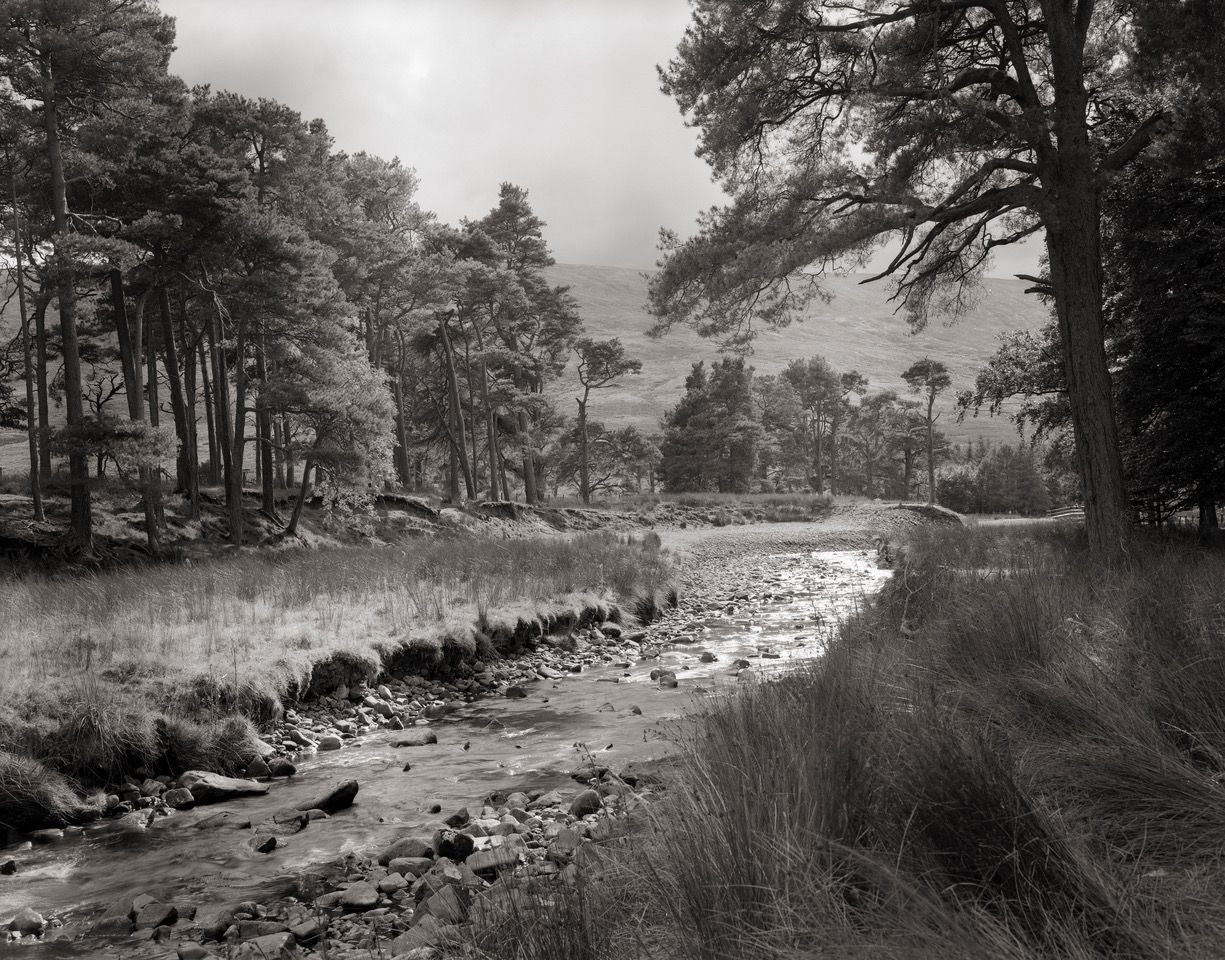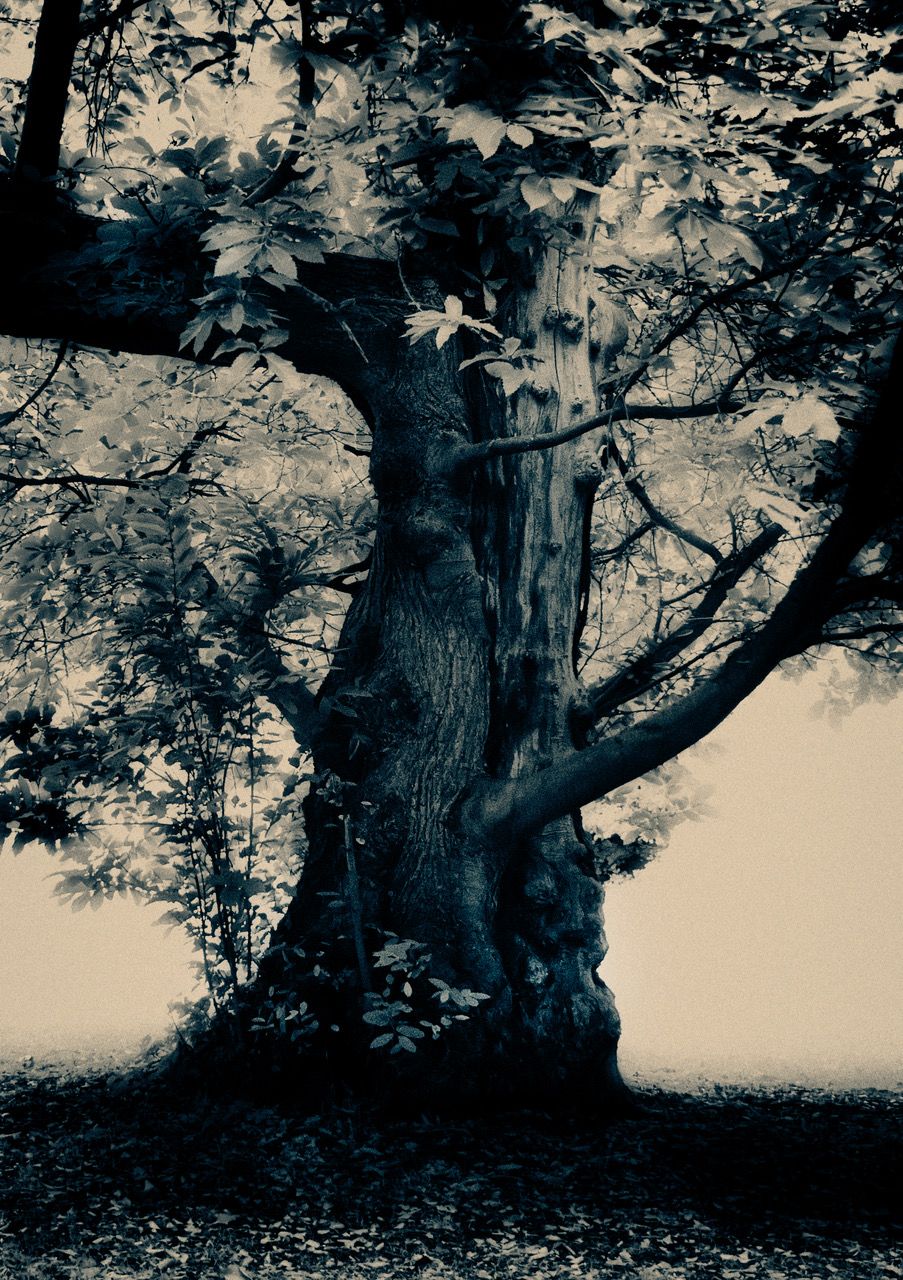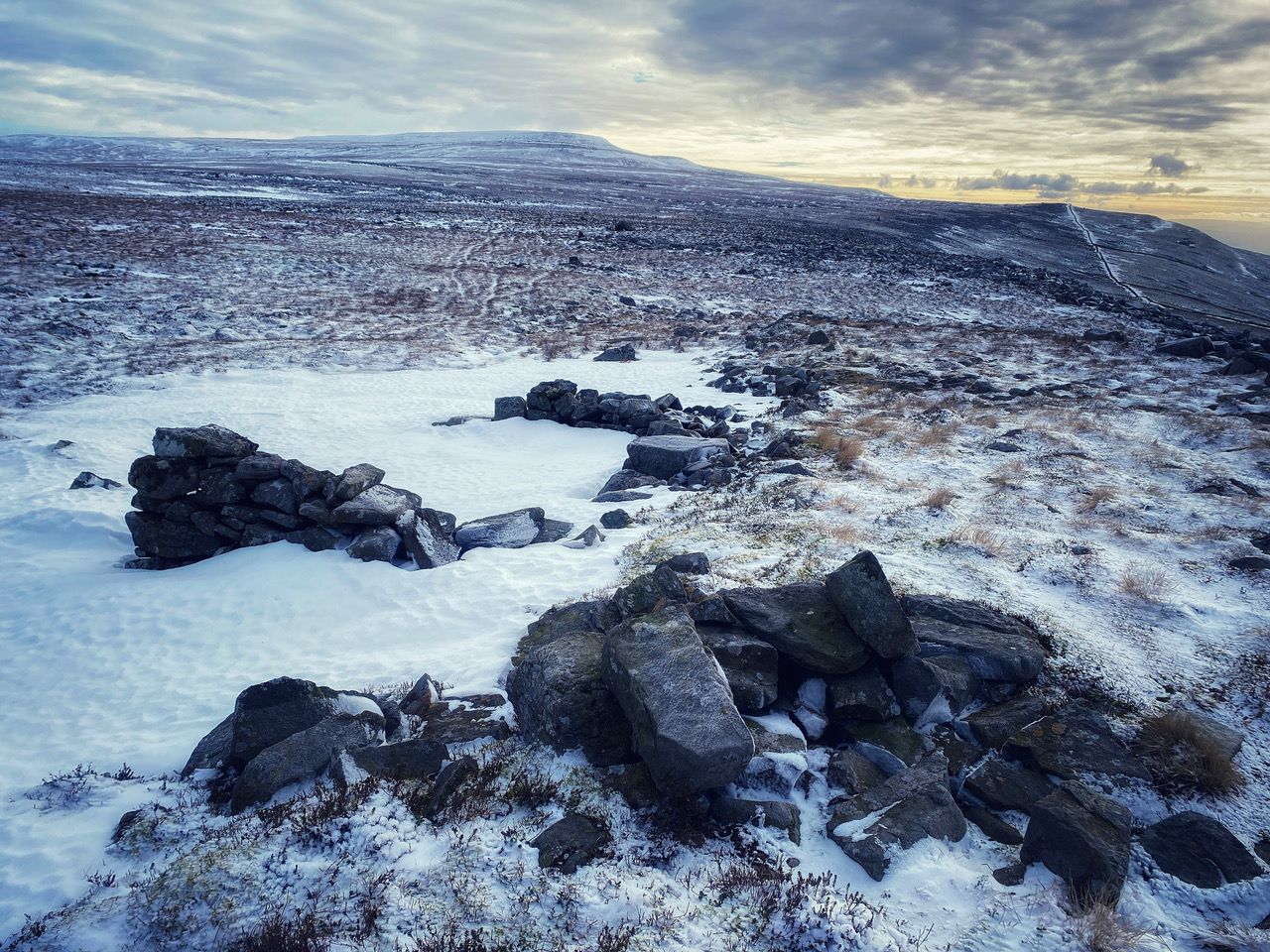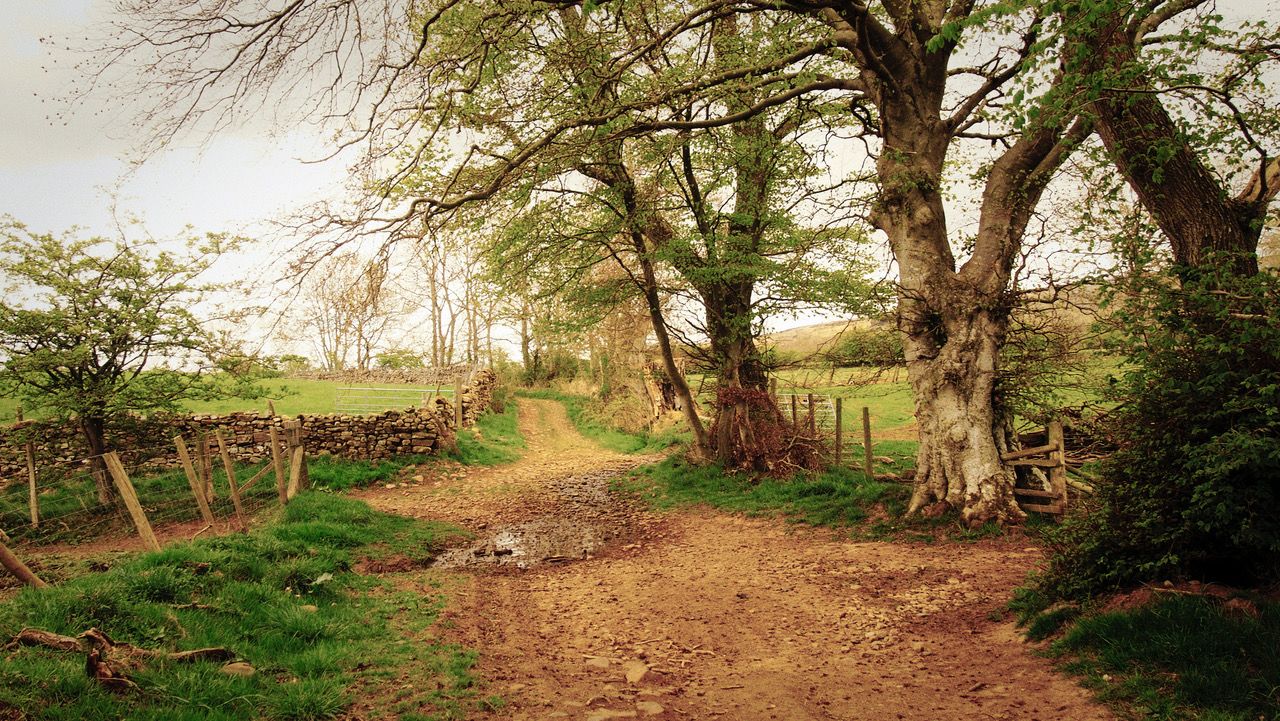
Gary Liggett, poet, filmmaker, beekeeper and biodynamic smallholder discusses a life of verse, writing, patient, slow photography and fruitful, subsistence farming in the wilds of Cumbria, with our editor-in-chief Alison Jane Reid. Gary was born in Liverpool to Irish ancestry. His hand-bound books of poetry with exquisite, mindful illustrations are held in permanent collections at MOMA in New York and the Wordsworth Trust. I hope you enjoy reading this evocative, inspiring interview and that it transports you far, far away from the madding crowd - Alison Jane Reid.
AJR. Your life as poet, photographer and organic smallholder speaks of a rich life, immersed in creativity and growing your own larder. What is the day to day reality? How do you divide your time between poetry, photography and the land?
GL. I feel utterly blessed to live in this place. Although demands of the smallholding vary throughout the seasons, I am always up and about early to let our chickens and ducks out of their coops. Once that is done, I have plenty of time to write while my mind is still uncluttered. In terms of photography, I prefer colder months for their atmospheric effects of mist, snow and ice. Winter on the smallholding is fairly quiet. Deep snowfalls and temperatures as low as minus 15 are not uncommon. We are usually busy from February onwards as the warmer air arrives and, by late May, I am sometimes hiving the occasional swarm.
AJR. Your poems suggest a profound connection and understanding of nature and the rhythms of the seasons. Do you spend a great deal of time in nature?
GL. I believe the landscape has enormous power and enormous strength, so I am fortunate to live within the North Pennines AONB. The quiet stillness here, living with wildlife, the fells, stone circles and the beat of the universe has provided untold inspiration for my writing. During the pandemic, it has also acted as a surrogate for places I have been unable to visit. I am currently working on a collection that is set in Ireland. Much of the inspiration for the Irish works has been drawn from places near to where I live, because there are so many similarities in the landscape.
“ Spring in the northern Pennines
so slow it nearly touches autumn —
becks pour through disused mines —
sedges the colour of curlews, bobbing heads
hoping for safety.
Sometimes a fox will steal her eggs,
badgers her chicks —
there is so much death, in life.”
AJR.What was your childhood like? What are your most formative memories and how did they shape your adult life and aspirations?
GL.My father was a very creative man who could play music, make, paint or write about almost anything, so he was a huge influence. When I was eleven I began to suffer epileptic fits, so that ruled out any notions of a job that involved working with sharp tools or machinery. During sixth form, I was given the opportunity to attend a short course on photography at the Laird School of Art. I really enjoyed seeing images appear on photographic prints as they develop, so I applied for a place on their full-time course. I was offered my first job as a filmmaker shortly before I left art school.

AJR.How do you begin a new poem? Is it a joyful, strange or difficult creative process?
GL. Ideas usually begin to percolate while I am among the fells. Writing a new poem is always a great joy, but it’s also a release of ideas that begin life as short lines. I then look for musicality and beat as I gradually piece them together. However, I concur with Leonard Cohen, who famously said: “if I knew where the great songs came from I would go there more often!”
AJR. Dare I ask, can one make a living from poetry in the 21st Century?!
GL I imagine Seamus Heaney became quite wealthy, after his death!
AJR. I noticed that you use a Leica for your photography. I've been a fan since I appropriated by boyfriend's vintage model! Do you use the camera for all your assignments?
Cameras, lenses and different types of film are akin to the range of hues on an artist’s palette. They are selected according to what I hope to create in terms of the finished image. Generally speaking, my predilection is for vintage uncoated lenses, because they produce a delightfully soft gradation. The other factor is light. I once waited 18 months for it to fall across a landscape in the way I had envisioned.
AJR.Who do you most admire living or dead?
GL.Karl Rogers. He believed that people have one basic motive: the desire to fulfil their potential, and achieve the highest level of ‘human-beingness’ possible. Rogers developed a model of psychology that offers the conditions for growth. Can you imagine the potential of a world filled with people who feel fulfilled, and happy because of it?
AJR.What do you grow on your organic smallholding?
GL. Self-sufficiency and reduction of our carbon footprint are the main drivers behind our ethos. We keep free ranging Marans chickens and farmyard ducks for their eggs. Salad crops, strawberries and grapes are grown in our polytunnel, while cabbages, onions, garlic, kale, black and redcurrants, blueberries peas and beans, celery and root crops are grown outside in our own biodynamic compost. As the season ends, we have enough food stored away to take us through to the following year’s harvest.
AJR .If you could throw a dinner party to celebrate poetry, photography and good food who would you invite?
GL. Aristotle, Michael Stipe, Sujata Bhatt, Osip Mandelstam, Anna Akhmatova, Leonard Cohen, David Lean, Jackie Kay, Jim Harrison, and Tom Pickard because I owe him a drink! Some of these writers are no longer living, so the meal would take place in the bardo which, incidentally, is where I draw a lot of inspiration.
“...the beaker people looking upwards began chanting the light
until at last their faces light up
and inky shadows begin to radiate
behind stone world
and unprinted dust falls like snow
as the steel blue brightness hovers
eminence
hanging silently above the chequerboard
until a girl offers her looking glass
so I can see inside the throb of silent blue..."

AJR. What would you have as your last meal on earth?
GL.The breakfast I make almost every day: rolled oats, cranberries, hazelnuts, walnuts from our tree, soya milk, blueberries, strawberries, grapes, chopped banana, rhubarb and homemade yoghurt.
AJR.What delights you?
GL. The next generation. I’m optimistic they will make the world a more sustainable place.
AJR.The poet is much more the one who inspires, than the one who is inspired.”― Discuss
GL.We do not exist in a vacuum. I am inspired by people I meet and places I see. A number of artists, for whom I have a huge amount of respect, have told me that some of their inspiration has been drawn from my work. While I find that humbling, it is part of the flow of ideas that inspires each of us, both collectively and individually.
AJR.What have you learned from keeping bees?
GL.Honeybees are probably the purest, non-political example of communism and equality I know. The ‘hive mind’ is their collective way of thinking about what is best for the colony as a whole. Whether it is the queen, drones or workers, no individual bee is more important than any other. We can all learn a great deal from their ways of being.
“Swallows are tilting the air around
this little thatched cottage.
There’s a stucco wall beneath the eaves.
If they decide to stay, I’ll invite them in.
I can scrape up some mud for us to sit on.”
AJR. Do you enjoy travel and meeting readers who are inspired by your books?
GL.One of the great joys of my life has been the opportunities it has presented to meet people from around the world who either produce creative work, or simply enjoy it. Katherine Soutar is currently illustrating Dumbarton Road, which is due out later this year. It’s difficult to describe the feelings I have experienced when I see how she has brought the fictional worlds of my poems to life. Planting Onions sold on five continents, so it has been gratifying to hear how readers from different countries have interpreted the meanings of my poems in the context of their cultures.

AJR. How would you explain what it means to come from Liverpool to a person from another planet?
GL.I suspect they have already arrived! St. John’s beacon is known locally as The Starship Enterprise — if you have seen it lit up on a foggy night, you would instantly understand why that is.
“I imagined Alrescha flicking sunlight on the lake
as she skips across the heavens to join Pisces
Are there stars for my dead dogs? I want to know.
With only gut instinct, I must wait awhile
until the large orange moon crawls into the sky.”
AJR. Are you a cook or someone who loves to be cooked for?
GL. Both. I maintain a very strict vegetarian diet for health reasons. My wife has had ME since the birth of our second daughter, so I like to ensure she eats food that does not contain legacy chemicals. I believe environment and stress are factors in diseases such as cancer.
AJR.What is the best time of the day?
GL. I learned early on in my photographic life that the hour after sunrise and before sunset are the golden hours. That seems to have rolled over into my writing. I sleep with a notebook beside my bed, so I can write down all of the ideas that flow from the quiet stillness of early morning.
AJR. If you were an animal or a bird what would you be?
GL.I don’t believe in coincidence. Every being who crosses our path has a message for us. I would like to be an owl. They bring thoughtfulness and silence — both being prerequisites for creativity — that allow us to fade noises that pollute our minds, while enhancing the sounds that are so deeply enriching.

“Owls pallbear non-sequiturs, and my leaky mouth joins in ritual,
blowing unfamiliar words through my cupped hands
and they glide to a closer perch, near Watermeetings,
hooting until I trusted, we trusted, and I realised
the source is everywhere is we look and listen.”
AJR.What have you learned from keeping a smallholding and using organic and biodynamic farming principles?
GL.How to live within my means, sustainably without adding to the destruction of the planet.
AJR.Which poet do you like to read when you are not writing your own poetry?
GL.If I am only allowed one, then it would have to be Sujata Bhatt.
AJR.What is the secret to a well-lived life?
GL. Being gentle with myself and kind to others.
Gary Liggett was talking to our Editor-in-chief Alison Jane Reid
Photography and Illustrations Gary Liggett. Copyright All Rights Reserved June 2021.
To find out more about Gary Liggett and his poetry follow him on Twitter @PoetLiggett






